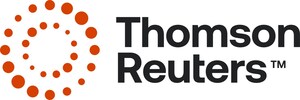
PHILADELPHIA and LONDON, Sept. 21 /PRNewswire/ -- With just two weeks until the recipients of some of the world's most coveted research prizes are named, Thomson Reuters is releasing its picks for 2010 Thomson Reuters Citation Laureates – researchers likely to be in contention for Nobel honors.
(Logo: http://photos.prnewswire.com/prnh/20090507/NY12658LOGO)
(Logo: http://www.newscom.com/cgi-bin/prnh/20090507/NY12658LOGO)
Each year, Thomson Reuters uses data from its research solution, Web of Knowledge(SM), to quantitatively determine the most influential researchers in the Nobel categories of Physiology or Medicine, Physics, Chemistry, and Economics. Based on citations to their works, the company names these high-impact researchers as Thomson Reuters Citation Laureates and predicts them to be Nobel Prize winners, either this year or in the near future.
Thomson Reuters is the only organization to use quantitative data to make annual predictions of Nobel Prize winners. Since 2002, 19 Citation Laureates have gone on to win Nobel Prizes.
"We choose our Citation Laureates by assessing citation counts and the number of high-impact papers while identifying discoveries or themes that may be considered worthy of recognition by the Nobel Committee," said David Pendlebury, Research Services, Thomson Reuters. "A strong correlation exists between citations in literature and peer esteem. Professional awards, like the Nobel Prize, are a reflection of this peer esteem."
The Thomson Reuters Citation Laureates typically rank among the top one-tenth of one percent (0.1%) of researchers in their fields, based on citations of their published papers over the last two decades.
This year, 15 of the 21 Citation Laureates hail from American universities; researchers from France, Japan, Australia, Canada and the United Kingdom also appear among the 2010 picks.
For detailed information about each of the Citation Laureates, including information about their areas of study, and to read about previously named Citation Laureates who are still in the running for a Nobel Prize, visit the Thomson Reuters Citation Laureates website at science.thomsonreuters.com/nobel. You can also sign up to receive up to the minute news about all things Nobel by following @nobelcitings on Twitter.com.
This year, Thomson Reuters is hosting a forum at science.thomsonreuters.com/nobel. The forum will feature a discussion among Nobel-watchers from all backgrounds about past and future Nobel Prize winners.
The 2010 Thomson Reuters Citation Laureates by Nobel Prize category are:
Chemistry |
|
Patrick O. Brown - For the invention and application of DNA microarrays, a revolutionary tool in the study of variation in gene expression. Susumu Kitagawa -and- Omar M. Yaghi - For the design and development of porous metal-organic frameworks, whose applications include hydrogen and methane storage, gas purification, and gas separation, among others. Stephen J. Lippard Arthur Amos Noyes Professor, Department of Chemistry, Massachusetts Institute of Technology, Cambridge, Mass., USA |
|
Physics |
|
Charles L. Bennett -and- Lyman A. Page -and- David N. Spergel - For discoveries deriving from the Wilkinson Microwave Anisotropy Probe (WMAP), including the age of the universe, its topography, and its composition. Thomas W. Ebbesen - For observation and explanation of the transmission of light through subwavelength holes, which ignited the field of surface plasmon photonics. Saul Perlmutter -and- Adam G. Riess -and- Brian P. Schmidt -For discoveries of the accelerating rate of the expansion of the universe, and its implications for the existence of dark energy. |
|
Physiology or Medicine |
|
Douglas L. Coleman -and- Jeffrey M. Friedman - For the discovery of leptin, a hormone regulating appetite and metabolism. Ernest A. McCulloch -and- James E. Till Senior Scientist, Ontario Cancer Institute, Toronto, Ontario, Canada -and- Shinya Yamanaka - For the discovery of stem cells and the development of induced pluripotent stem cells. Ralph M. Steinman - For the discovery of dendritic cells, key regulators of immune response. |
|
Economics |
|
Albert Alesina - For theoretical and empirical studies on the relationship between politics and macroeconomics, and specifically for research on politico-economic cycles. Nobuhiro Kiyotaki -and- John H. Moore - For formulation of the Kiyotaki-Moore model, which describes how small shocks to an economy may lead to a cycle of lower output resulting from a decline in collateral values that create a restrictive credit environment. Kevin M. Murphy - For pioneering empirical research in social economics, including wage inequality and labor demand, unemployment, addiction, and the economic return on investment in medical research among other topics. |
|
Thomson Reuters
Thomson Reuters is the world's leading source of intelligent information for businesses and professionals. We combine industry expertise with innovative technology to deliver critical information to leading decision makers in the financial, legal, tax and accounting, healthcare and science and media markets, powered by the world's most trusted news organization. With headquarters in New York and major operations in London and Eagan, Minnesota, Thomson Reuters employs 55,000 people and operates in over 100 countries. For more information, go to www.thomsonreuters.com.
CONTACTS |
|
Susan Fitzpatrick |
|
SOURCE Thomson Reuters





Share this article